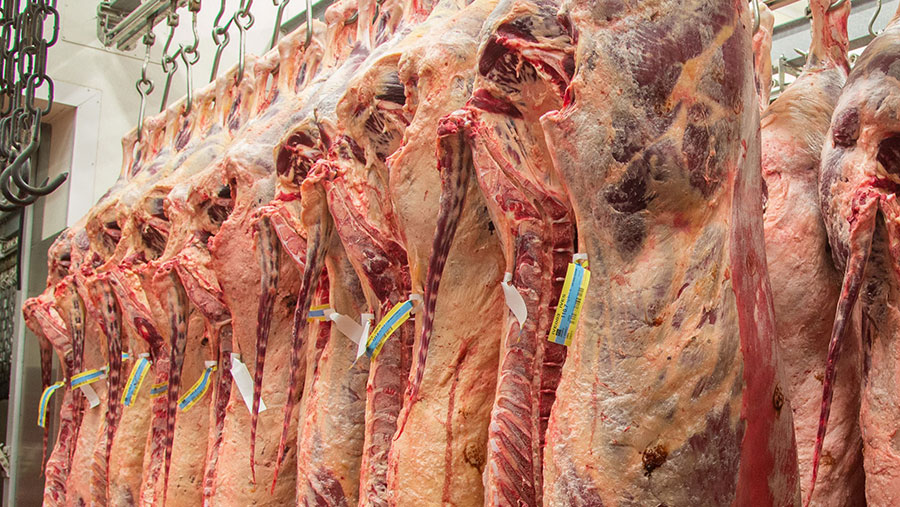Drought cuts beef carcass weights and leaves lambs underfinished
 © FLPA/John Eveson/REX/Shutterstock
© FLPA/John Eveson/REX/Shutterstock Beef carcass weights are likely to fall as producers try to reduce feed stock pressure and sell cattle earlier than usual, says the AHDB.
Liveweight beef prices in the week ending 24 July rose slightly for most classes of stock, with numbers down 10%.
Average GB deadweight prices in the week ending 21 July fell by 4-7p/kg for steers, heifers and young bulls, on higher heifer and bull numbers but fewer steers. Cull cow prices took the biggest hit, falling by just over 12p/kg to average 242.7p/kg on almost 3% fewer cattle.
Lambs coming forward are underfinished, which in turn is affecting overall production and the SQQ price, says the AHDB, although it does not see any change in the seasonality of marketing.
However, markets in the week ending 24 July saw 21% more lambs sold than the previous week, with average prices up by 7p-10.6p.
The AHDB’s figures put the UK lamb crop 6% down on the year, driven by the conditions at lambing.
See also: Top 8 farm tenancy issues and how to resolve them
Supplementary lamb feed
Producers have already been feeding more compounds as a result of the poor spring, with sheep feed production up 14% during the first five months of 2018 year-on-year.
Accepting that feed prices will already be prohibitively high for some, and worsened by a weaker sterling, the AHDB suggests mitigation strategies for reduced feed availability:
- Plan winter forage in conjunction with options for retention of breeding animals at housing time
- Consider fixing at least some feed prices to mitigate risk
- Weather permitting, consider planting additional catch crops (kale, brassicas)
- Watch for emerging feed alternatives – for example, a successful potato crop may offer the chance to change the components of silage or feed mixes
National Sheep Association chief executive Phil Stocker said there was still a lot of confidence in the sheepmeat market.
“Production is under pressure in other countries, meaning global supplies will be tight,” he said.
However, there is nervousness about this autumn’s store and breeding sales. “If this continues, stubble turnips and rape can’t be put in and dairy grass keep will not be available – it will make it challenging.”
